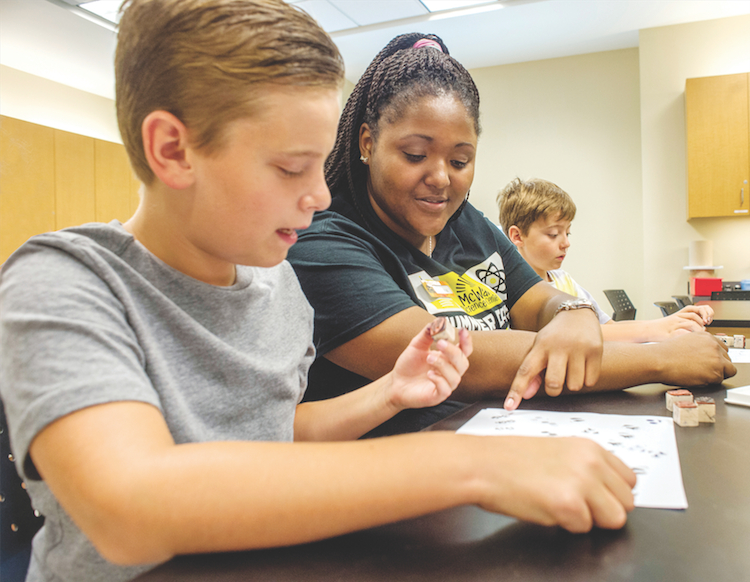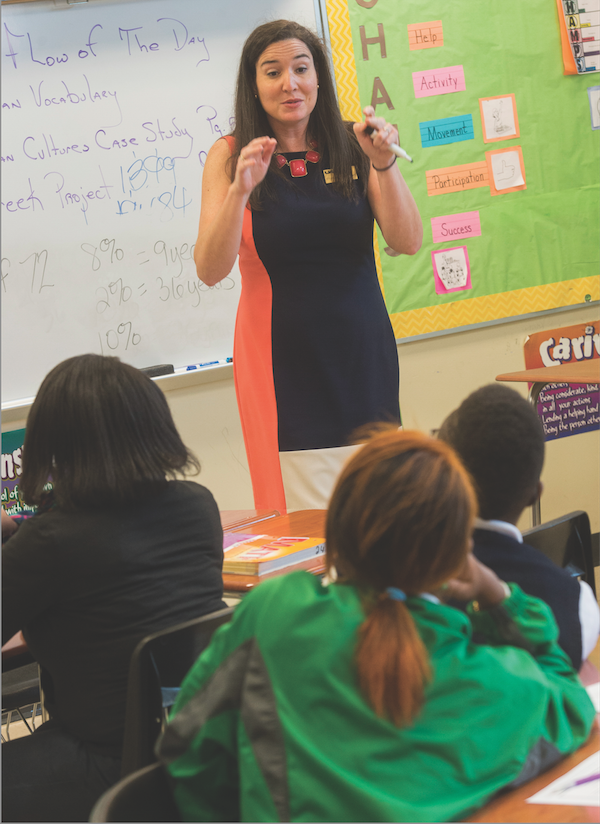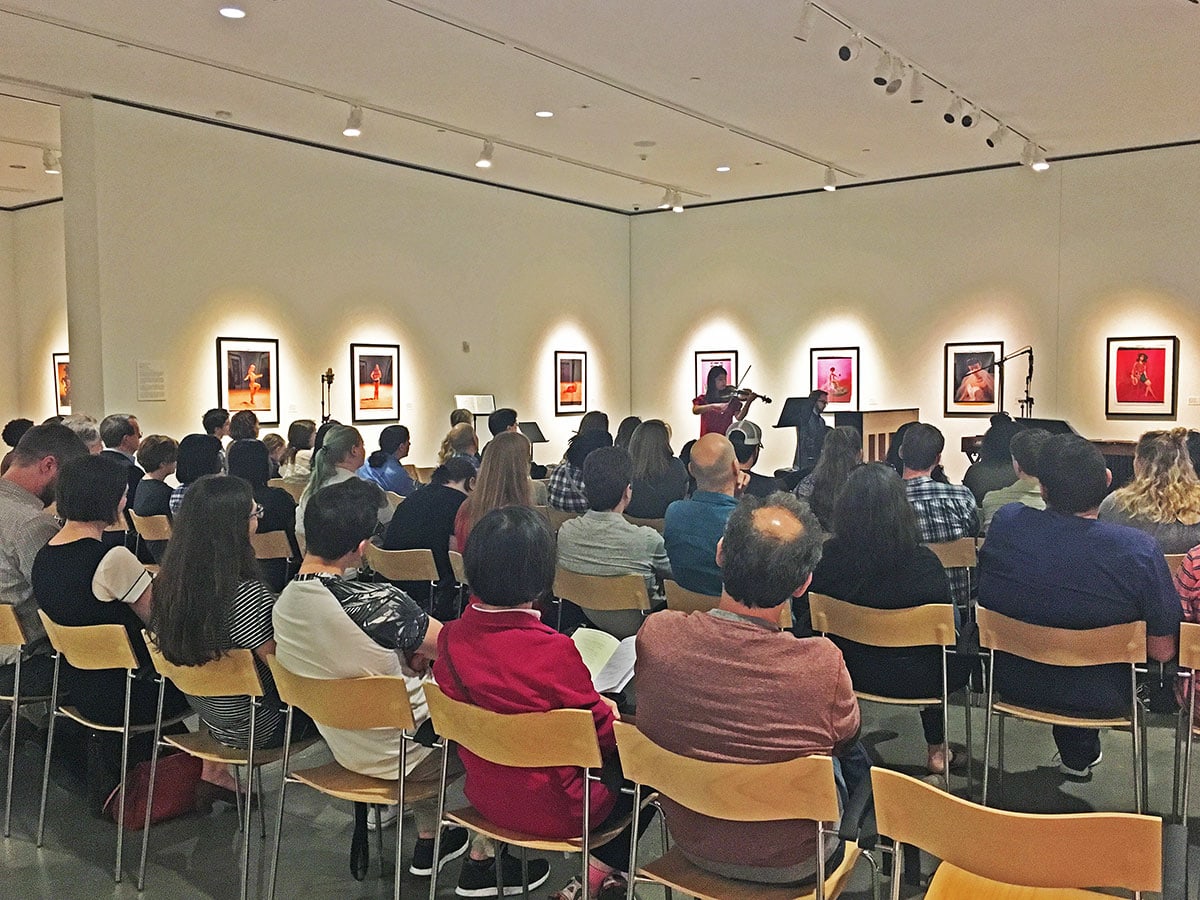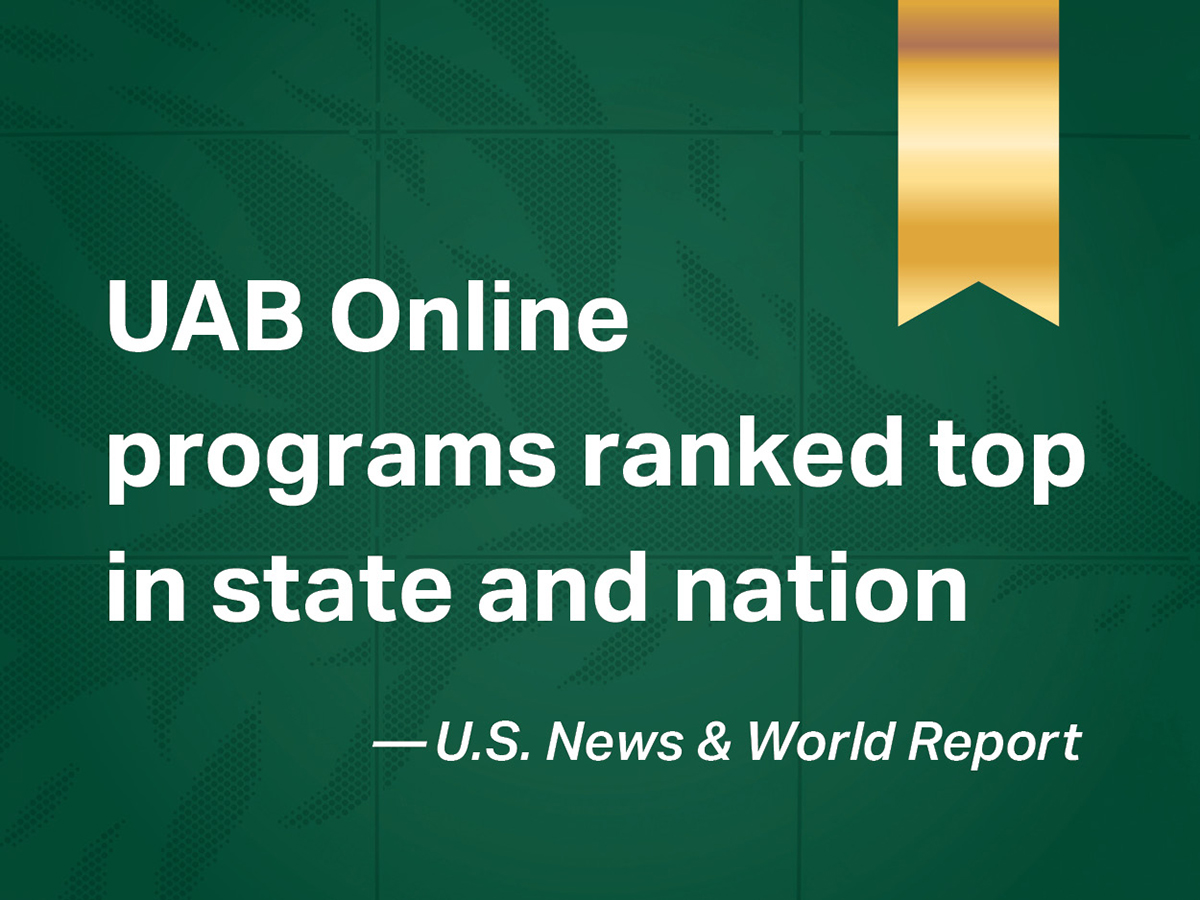The innovative UABTeach program educates Alabama’s future teachers
When the UABTeach program was announced in the fall of 2014, there was broad support and enthusiasm across UAB’s campus and in school districts across the state. Based on the national UTeach Institute that was developed at the University of Texas at Austin, the program allows undergraduates majoring in STEM fields to add a teaching certificate to their degree within four years. At the end of their coursework, students graduate with a degree in their field as well as certification and training to teach in the State of Alabama.
 The program co-directors are Dr. John Mayer from the Department of Mathematics and Dr. Lee Meadows from the School of Education. As Dr. Mayer explains, the initial conservative projections were that 25-50 students would enroll in the first semester and that by this point in time, they would have 117 students in UABTeach at all levels. “We hit 40 percent over our most optimistic assumption for the first semester,” he says. “In Fall 2015, we again exceeded our most optimistic estimate of 40-60 with 80 enrolling in a Step 1 class. Today, enrollment in UABTeach courses for Spring 2016 stands at 129.”
The program co-directors are Dr. John Mayer from the Department of Mathematics and Dr. Lee Meadows from the School of Education. As Dr. Mayer explains, the initial conservative projections were that 25-50 students would enroll in the first semester and that by this point in time, they would have 117 students in UABTeach at all levels. “We hit 40 percent over our most optimistic assumption for the first semester,” he says. “In Fall 2015, we again exceeded our most optimistic estimate of 40-60 with 80 enrolling in a Step 1 class. Today, enrollment in UABTeach courses for Spring 2016 stands at 129.”What’s behind the appeal? One powerful attraction is that STEM students have options when they graduate: find jobs in their major fields, which include biology, chemistry, mathematics, engineering, physics, and biomedical science, or enter the classroom and teach K-12 students. “It diversifies their options,” says Adam Roderick, UABTeach academic coach. “But even if they decide not to teach, many of the skills they learn in the program translate to whatever career they decide to pursue. Communication, public speaking, conflict resolution, and even teaching are important in any profession.”
Another driver is that the first two courses in the program are fully reimbursed to the student, meaning they can explore teaching for free. The first-semester class also counts as a First Year Experience class, which is requirement for all undergraduates, so there’s no need to backtrack if a student decides teaching isn’t for them.
Roderick says the design of the program is innovative in that it puts students in the classroom during their first semester. “There is a high degree of attrition from the first and second semesters,” he says. “Putting UABTeach students in the classroom from the very beginning is intentional, because it helps them realize quickly whether or not teaching is for them. That’s why they’re in the classroom early. They know right away whether it’s going to work. It’s practical; it’s hands on. And it can be infectious if teaching is something they like.”
Students can enter the program at any time, although UABTeach cannot ensure the program requirements can be met in four years if students begin the program later than their junior year. Entering freshmen have eight semesters to complete the courses, training, and apprentice teaching. Second-semester freshmen see that compressed to seven semesters as two courses must be taken simultaneously; first-semester sophomores have six semesters to complete the work, and so on.
 As with any students in the School of Education, UABTeach students must complete their assessments, evaluations, and Alabama Educator Certification Program (AECTP) applications. They are mentored by three Master Teachers—Amy Morgan, Suzanne Culbreath and Paulette Evans—experienced career educators who have joined the program from area school systems. They’re also guided by faculty members Dr. Andrew Keitt, an associate professor in the Department of History, and Ann Dominick, a longtime classroom teacher and educational theorist. Roderick says that as the program grows, a peer-to-peer mentoring program, whereby UABTeach students work closely with their newer cohorts, will also be critical. Other important partners include the Academic Success Center and the Honors College.
As with any students in the School of Education, UABTeach students must complete their assessments, evaluations, and Alabama Educator Certification Program (AECTP) applications. They are mentored by three Master Teachers—Amy Morgan, Suzanne Culbreath and Paulette Evans—experienced career educators who have joined the program from area school systems. They’re also guided by faculty members Dr. Andrew Keitt, an associate professor in the Department of History, and Ann Dominick, a longtime classroom teacher and educational theorist. Roderick says that as the program grows, a peer-to-peer mentoring program, whereby UABTeach students work closely with their newer cohorts, will also be critical. Other important partners include the Academic Success Center and the Honors College. Many of our students are Honors College students,” Roderick says. “Their major degrees are difficult in themselves: chemistry, neuroscience, mathematics. We know as they reach 300- and 400-level courses in their majors, they will also be taking more demanding UABTeach courses. Helping these students manage their workload and still complete their degrees on time is a priority.”
The first semester of apprentice teaching will be offered in the spring of 2017, meaning that the first UABTeach graduates will enter their own classrooms in the fall of 2017. Meadows says that, based on the response he received from superintendents across the state, these graduates will be well received. “I spoke at the superintendents’ winter conference and I asked the group, ‘How many of you consistently have a problem getting quality science and math teachers?’ and almost every hand went up,” he says. “Honestly I didn’t know the shortage was that bad. And then after I presented the UABTeach program, I asked them, ‘How many of you would be interested in talking to our UABTeach students?’ and then every single hand went up.”
Meadows points out that one of the many benefits of the program is that for rural school districts that struggle to attract teachers to their area, they may now have the ability to bring their own kids—who attend UAB and finishes the UABTeach program—back to their hometown to educate the next generation. “These superintendents see the opportunity to train their students to be teachers, then come back home,” he says. He adds that, even after the UAB students finish the program and graduate, they’re still supported by the UABTeach team. “We follow them for the first two years to help them get settled.”
It’s what we call a win-win.
Support UABTeach
With more undergraduates joining the UABTeach program, there is a need to help them reach their educational and career goals. There are also ways to support the faculty and staff who are critical to making the program successful.Opportunities include:
- Student Scholarships
- Mentor Teacher Program Support
- Master Teachers and Teaching Assistant Support
- UABTeach Endowment Support


